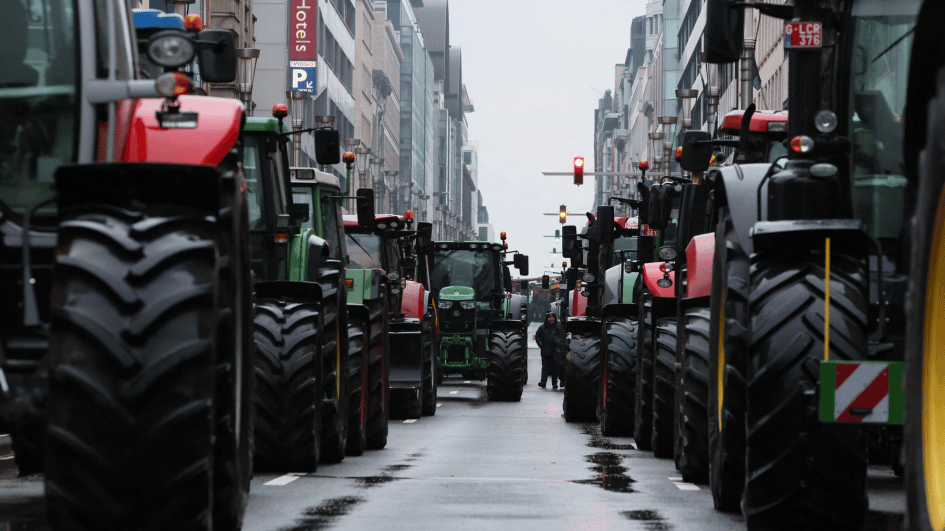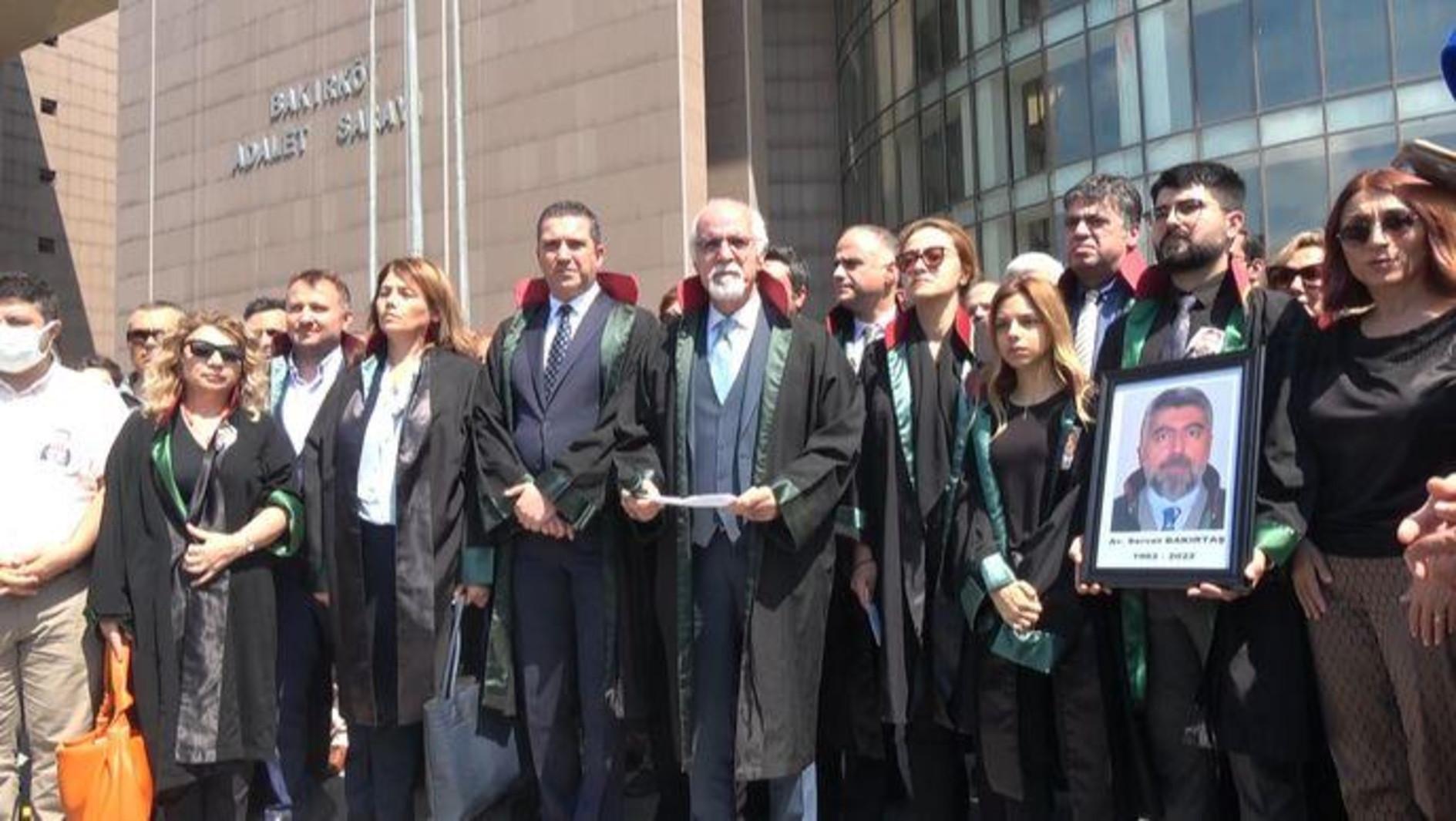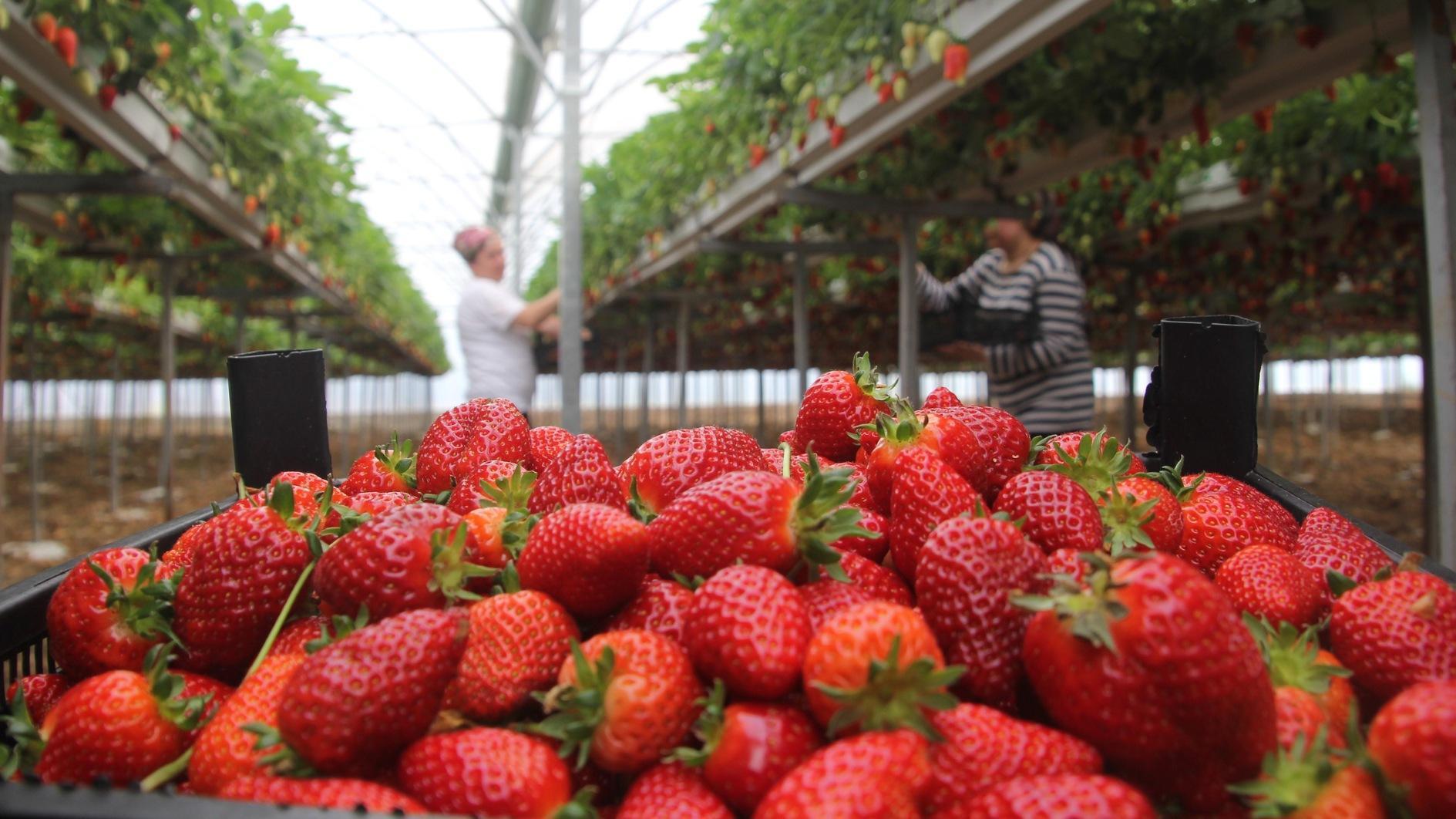Tractor protests threaten EU's green farming policies
WESTROZEBEKE

It was the puddles of green sludge left by the tires of massive tractors in western Belgium’s industrial farmlands that drew the attention of biological engineer Ineke Maes.
The slime was destructive algae, the result of the excess of chemicals used by farmers to boost their crops, but at a high cost to nature. Maes had hoped the European Union’s environmental policies would start to make a fundamental difference by improving exhausted soils.
In recent weeks, some of those tractors moved off the land and onto the roads, blocking major cities and economic lifelines from Warsaw to Madrid and from Athens to Brussels. Farmers were demanding the reversal of some of the most progressive measures in the world to counter climate change and protect biodiversity, arguing that the rules were harming their livelihoods and strangling them with red tape.
And the impact has been stunning.
The farmers' protests affected the daily lives of people across the 27-nation bloc, costing businesses tens of millions of euros in transportation delays.
The disruption triggered knee jerk reactions from politicians at national and EU level: they committed to rolling back policies, some of them years in the making, on everything from the use of pesticides to limiting the amount of manure that could be spread on fields.
To environmentalists like Maes, who works for the Belgian Better Environment Federation umbrella group, it would almost be laughable if it were not so depressing.
And there's no end in sight.
After hundreds of tractors disrupted the EU summit in Brussels early this month at a volume that kept some leaders awake at night, farmers plan to return yesterday. They intend to be there when agriculture ministers discuss an emergency item on the agenda — the simplification of agricultural rules and a decrease in checks at farms that environmentalists fear could amount to a further weakening of standards.
The political noise level from the tractors does get through, officials said.
As a result, the EU's flagship Green Deal, that aims to make the continent carbon-neutral by 2050, is under threat.
EU Commission President Ursula von der Leyen insisted that she “remains fully committed to delivering solutions to ease the pressure currently felt by our hard-working farming women and men.”
Von der Leyen's change in emphasis comes ahead of the June 6-9 elections, when a good showing by her Christian Democrat group, the European People's Party, will be key to keeping her at the helm of the all-powerful Commission. As her party has swayed toward putting farmers and industry first, so has she.
“It is a bit difficult putting a pin on Mrs. von der Leyen,” said Jutta Paulus, a Green member of the European Parliament. "She started off in 2019 being a climate and environment champion, more or less saying, ‘We don’t need the Greens anymore, we are green ourselves.’ And now she says: ‘Well industry called me and they are worried. So I have to do something.’”
In the wake of the tractor protests, action came fast and furious.
Early this month, von der Leyen's Commission shelved an important anti-pesticide proposal, insisting “a different approach is needed.”
She also allowed farmers to continue using some land they had been required to keep fallow to promote biodiversity.
At the same time, a nature restoration law which was seen as another element in the Green Deal aspiration has already been watered down to appease farmers before it goes to a final legislative vote next Tuesday.
















